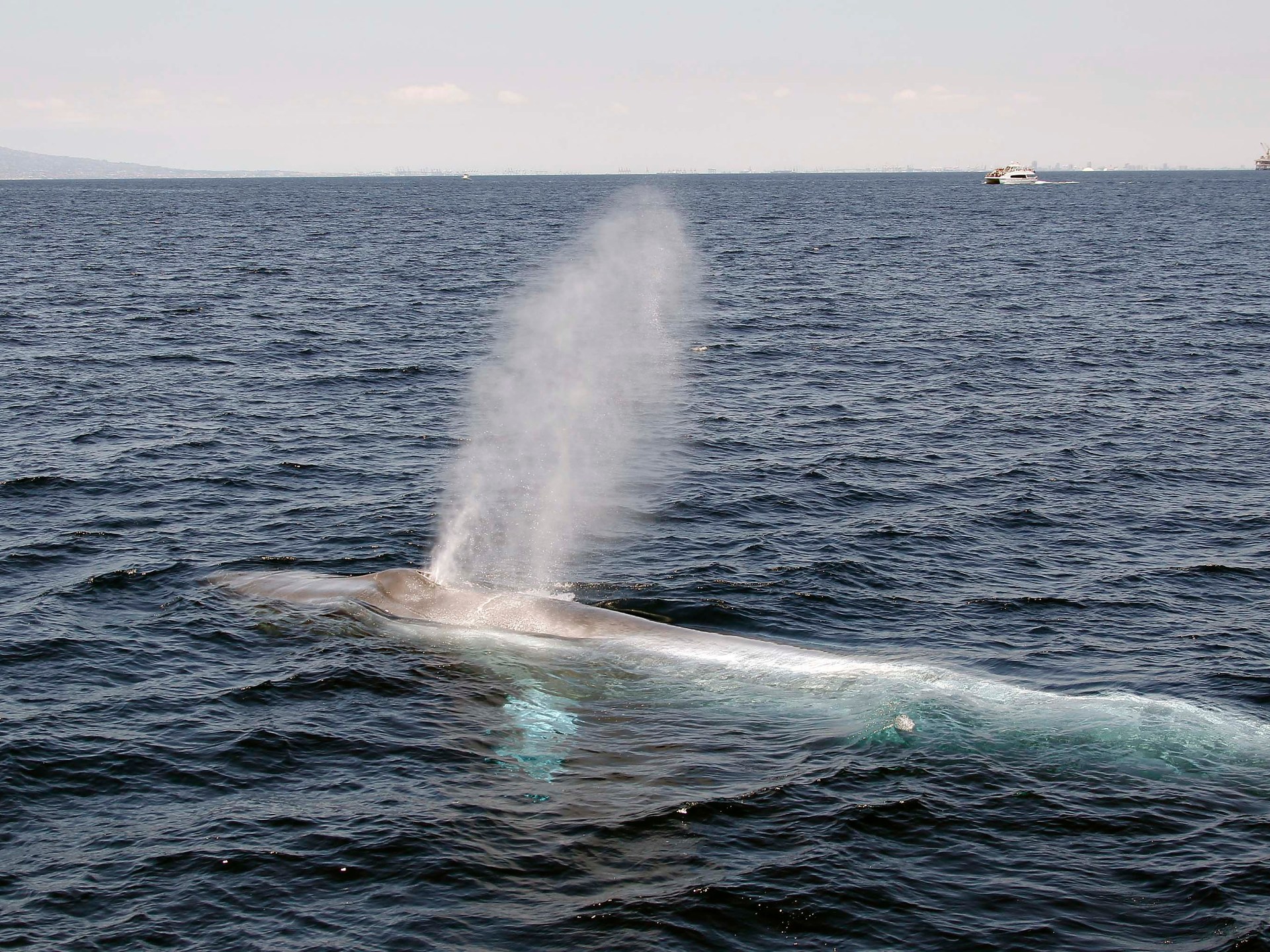But while they may not be exactly dancing material, whale songs are critical for communication: between males and females during mating, or among a school of whales migrating.
For researchers, these complex sounds are a window into whale behaviour, even if humans don’t yet know exactly how to decode them.
The frequency of songs and their intensity can signal various things: an abundance of food, for example. In recent studies, however, researchers have been alarmed to find that blue whales, the largest whales and, indeed, the largest mammals on Earth, have stopped singing at specific times.
Their eerie quietness, scientists say, is a signal that ocean life is changing fundamentally. The most recent study, conducted by scientists from the Monterey Bay Aquarium Research Institute in California in the US and published in February, examined three types of whales. Researchers found that blue whales, in particular, have become more vulnerable to this change.

What have researchers found, and where?
At least two studies between 2016 and 2025 have found similar behaviour: blue whales have reduced their singing for stretches of time.
The first study, conducted in the sea waters between the islands of New Zealand between 2016 and 2018, was led by scientists from the Marine Mammal Institute at Oregon State University in the US. Over that period of time, researchers tracked specific blue whale vocalisations linked to feeding (called D-calls) and mating (called patterned songs).
Researchers used continuous recordings from underwater devices called hydrophones, which can log sounds over thousands of kilometres, and which were placed in the South Taranaki Bight – a known foraging spot for blue whales off the west coast of New Zealand.
They discovered that during some periods, particularly in the warmer months of spring and summer when whales usually fatten up, the frequency and intensity of sounds related to feeding activity dropped – suggesting a reduction in food sources. That decline was followed by reduced occurrences of patterned songs, signalling a dip in reproductive activity.
“When there are fewer feeding opportunities, they put less effort into reproduction,” lead researcher Dawn Barlow told reporters. The results of that study were published in the journal Ecology and Evolution in 2023.
Then, in a study published in the scientific journal PLOS One in February this year, researchers tracked baleen whale sounds in the California Current Ecosystem, the area in the North Pacific Ocean stretching from British Columbia to Baja California. Blue whales are a type of baleen whale, and the study focused on them, alongside their cousins, humpback whales and fin whales.
Over six years starting in 2015, the scientists found distinct patterns. Over the first two years, “times were tough for whales”, lead researcher John Ryan, of the Monterey Bay Aquarium Research Institute in California, noted in a press statement, as the whales, particularly blue whales, were found to be singing less. Over the next three years, however, all three whale species were back to singing more frequently, the study noted.

Why are blue whales singing less?
Both studies found one main reason for the reduction of whale song: food or, in this case, the lack of it.
It turns out that the research, conducted between 2015 and 2020, captured periods of extreme marine heatwave events that killed off krill, the small shrimp-like animals that blue whales feed on.
Those heatwaves are part of a looming environmental catastrophe scientists have been warning about: ongoing global warming marked by increases in global average temperatures, and caused by high-emission human activities, chief among them being the burning of fossil fuels.
Scientists say the world could soon reach a tipping point at which there will be irreversible change to the planet. Already, 2016, 2023 and 2024 have been recorded as the warmest years ever.
Why are food sources disappearing for whales?
Krill, which blue whales primarily feed on, are highly sensitive to heat and can all but vanish during heatwaves, the studies found. Their movement patterns also change drastically: instead of staying together, as they usually do, krill disperse when it is hot, making them harder for predators like blue whales to find.
Typically, when foraging, blue whales sing to others to signal that they have found swarms of krill. If there is no food to sing about, it makes sense that there will be no singing.
Heatwaves can also trigger harmful chemical changes in the oceans that encourage the growth of toxic algae, which causes poisoning and death to mammals in the oceans and sea birds, researchers have previously found, suggesting that blue whales are also at risk of being poisoned.
In the more recent study in California, researchers found that in the first two years when whales were singing less frequently, there was also a reduction in other fish populations.
Are blue whales more vulnerable than other whales?
The second period of three years witnessed a resurgence of krill and the other fish, along with more whale singing. When krill again declined, blue whales again sang less frequently, while singing from humpback whales continued, the study noted.
“Compared to humpback whales, blue whales in the eastern North Pacific may be more vulnerable due to not only a smaller population size but also a less flexible foraging strategy,” Ryan, the lead author of the California study said in a statement.
“These findings can help scientists and resource managers predict how marine ecosystems and species will respond to climate change,” he added.
It is likely, both studies say, that blue whales need to spend more time and energy finding food when it is scarce, instead of singing.

Are other animals changing their sounds?
Studies have found that climate change is altering the sounds of several other species as well. Nature-related sounds, such as birdsong from certain species, could disappear altogether in some places as warming temperatures alter animal behaviour. For example, some animals might move permanently away from their traditional habitats.
In New York, scientists found that over a century (1900-1999), four frog species changed their calling patterns, which males use to attract females for mating, and which are usually tied to the warming of spring and early summer. Over time, some frogs were calling about two weeks earlier than usual, researchers found, adding that it signified summer was arriving earlier.
















Leave a Reply